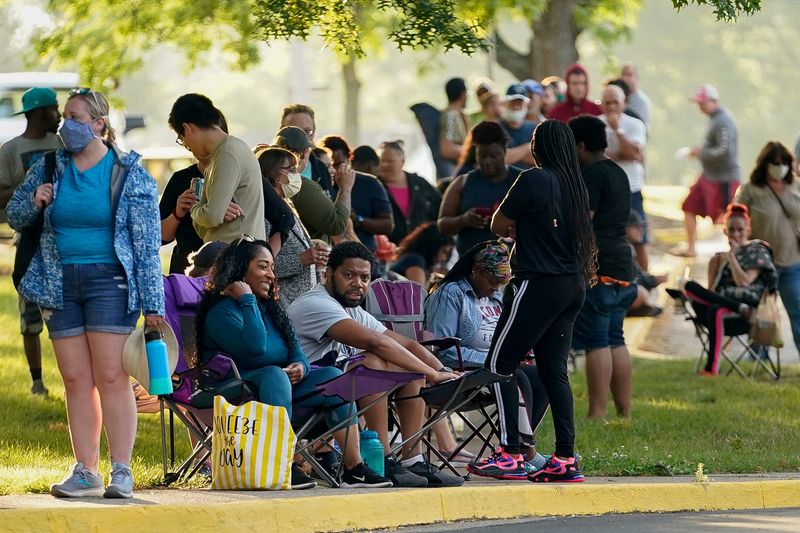(Reuters) - The number of Americans not looking for jobs over the previous four weeks because of the COVID-19 pandemic dipped in November but remained well above one million people, a Labor Department survey showed on Friday.
The survey period reflects a month in which cases of the coronavirus rose again following a fall in new infections in October. Economic policymakers have been grappling with what is keeping people on the sidelines and how many they expect to eventually come back into the labor force.
The number of people who said they did not look for work because of COVID-19 fears declined to 1.19 million from 1.29 million the prior month, the lowest number since the pandemic began but not enough to cool intense hiring competition by firms amid labor shortages.
The figures are derived from an ongoing additional survey of households carried out by the U.S. government that has accompanied the monthly jobs report since the beginning of the pandemic.
Overall, U.S. job growth increased far less than expected in November, likely as millions of unemployed Americans remained home despite companies boosting wages, generous jobless benefits expiring and schools fully reopening.
It could cause a headache for the Federal Reserve, which is set to decide whether to speed up the conclusion of its bond purchase program at its next policy meeting on Dec. 14-15, in order to possibly raise interest rates sooner next year to rein in inflation which is at a 31-year high.
"It's a market that's healing but healing at an uneven level" said Peter Cardillo, chief market economist at Spartan Capital Securities in New York.

For those in jobs, the impact of COVID continued to recede. Approximately 3.64 million people were unable to work in November or reported reduced hours due to their business either closing entirely or cutting back operations, down from roughly 3.83 million in the prior month, according to the survey.
The number of people who said they teleworked recently due to the pandemic fell last month to 17.5 million from 18.05 million in October.
